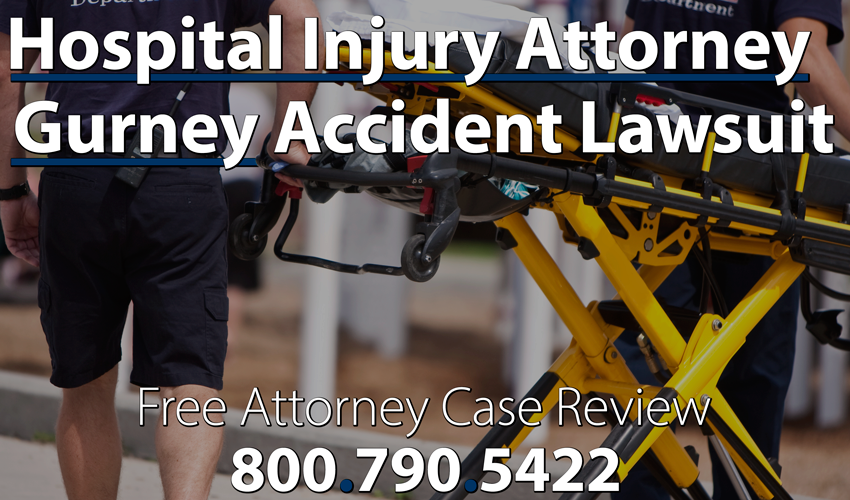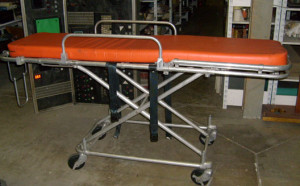
Every year, thousands of seniors are admitted to nursing homes, hospitals, and other care facilities. We rely on these facilities to take care of our elderly loved ones, but what happens if the nursing home, hospital, or other care facility is actually causing more harm than good? Every year there are approximately 1800 deaths in nursing homes across the state. This number doesn’t reflect the amount of elderly folk that pass away as a result of old age. These individuals are dying because they are falling out of bed.
Bed falls occur twice as often at nursing home facilities compared to the elderly that are taken care of by loved ones in the comfort of their homes. Nursing homes with 100 beds typically report 100-200 falls per year. There are a number of reasons that bed falls are occurring so often, and it is a direct result of the negligence of the nursing facility or staff. Medication is the number one cause of these falls every year, and the number continues to rise. Prescription medication can cause the elderly to become confused, disoriented, uncoordinated. Anti-Psychotic medication is prescribed to the elderly at nursing homes across the United States in order to keep patients compliant. This is unfortunate because The Nursing Home Reform Act of 1987 expressly forbids the use of “chemical restraints,” although it is reported that 1 in 5 nursing homes across the U.S. continue to prescribe this potentially deadly medication to seniors. Other fall injuries can take place on X-ray machines, MRI scanners, operation room beds, and on gurneys used to transport those who are deemed immobile.
Nursing homes are required to perform “Fall-Risk” assessments of every patient admitted to the facility. This assessment is used for checking Gait disorders and other problems that predispose patients to falling. Instead of performing assessments of the likelihood of a patient falling out of bed, nursing home facilities must implement a “Fall-Prevention” plan. If we can prevent the death of a loved one by implementing fall-prevention plans, then why wouldn’t we?
Our top-rated law firm, Normandie Law Firm, has some of the city’s top attorneys with experience in gurney accident cases. We want to protect your loved ones from harm and make sure those who are responsible for any injuries are held responsible. An experiened attorney can help earn you compensation for these damages.
Bed Rail Risks – Common Hazards for the Patients
- Strangling
- Suffocating
- Bodily injury or death
Patients who get caught between the bed rails and the mattress are at a heightened risk of death or great bodily injury. Additionally, more and more patients are dying each year as a result of strangulation when they are caught between their mattresses and the bed rails that are supposed to be in place to protect against this type of injury. If you need more information on bed rails and how they can affect those in hospital beds, contact an expert lawyer experienced in gurney accident cases.
Common Bed Rail Injuries include:
- Severe bodily injury
- Death
- Skin bruising
- Cuts and scrapes
- Inducing agitated behavior
- Broken bones
- Fractures
- Traumatic Brain Injury
- Dislocation
Potential benefits of bed rails include:
- Aiding in turning and repositioning within the bed
- Providing a hand-hold for getting into or out of bed
- Providing a feeling of comfort and security
- Reducing the risk of patients falling out of bed when being transported
- Providing easy access to bed controls and personal care items
Common causes of bed falls include:
- Inadequate staffing/ supervision
- Muscle weakness and walking or gait problems are the most common causes of falls among nursing home residents. These problems account for about 24% of the falls in nursing homes
- Environmental hazards in nursing homes cause 16% to 27% of falls among residents
- Hazards include wet floors, poor lighting, incorrect bed height, and improperly fitted or maintained wheelchairs
- Other causes of falls include difficulty in moving from one place to another (for example, from the bed to a chair), poor foot care, poorly fitting shoes, and improper or incorrect use of walking aids
Safety Procedure to Prevent Falls
Safety experts even state that bad falls are events which should never take place inside protective settings such as hospitals and nursing homes. Currently, 39 states DO NOT require hospitals and/or nursing homes to report falls in their facilities; thankfully, California is NOT one of the states exempt from reporting annual falls. In addition, California requires nursing homes to provide a minimum of 3.2 nursing hours per day per patient. If these one-on-one hours have not been met and your loved one was injured as a result, then the nursing home or hospital will be liable for all resulting injuries and damages.
A survey of nurses across the United States reveals many preventable injuries and deaths occur in nursing homes and other care facilities as a result of understaffing. Hospitals and nursing homes are held to certain standards that must be met. If these standards are not met, or “breached” then the hospital or other care facility has been negligent. Thus, they will be held accountable for any injuries and damages you may incur.
If you feel your loved one has been injured due to the negligent actions of a healthcare facility, reach out to an accomplished attorney who has experience in gurney accident cases for more assistance.
Financial and Human Costs of Bed Falls
Many falls do not cause serious injury, but 1 in 5 falls cause severe injury (i.e. broken bones, fractures, head injuries) or death. These injuries can be serious due to the elderly feeling weak, tired, or dizzy. More than 95% of hip replacements are a result of falls in nursing homes and hospitals, usually by falling sideways. Additionally, falls are the number one cause of Traumatic Brain Injuries (TBI). If you or a loved one have been admitted to the hospital, nursing home, or other care-facility and have fallen out of bed, causing injury, then please call our offices for your 100% free consultation with one of our experienced lawyers.
Establishing Liability and Winning Your Case
Nursing homes and hospitals have a duty to protect every individual that is admitted into their facility. This duty extends to keeping each resident safe within the confines of the nursing home or hospital. Nursing homes and other care facilities must conduct a Fall-Risk assessment with every new patient admitted. A Fall-Risk assessment analyzes the risk of a nursing home or hospital patient falling out of a bed, chair, in the shower, etc. Once the assessment is complete, each patient is assigned a number ranging from 1-10 (10 being the highest risk of fall) and is supervised accordingly.
When there is a fall at a nursing home or other care-facility as a result of understaffing or inadequate staffing, the nursing home or hospital will be held liable for any injuries and damages you have incurred. The hospital or care facility will be held responsible for you or your loved ones injuries if they have been found negligent. Negligence is the result of “the failure to use reasonable care.” The phrase “reasonable care” refers to how another person under the same circumstances would act. Thus, if a hospital or nursing home fails to adequately supervise a patient in their facility, and that failure to supervise results in a patient falling and breaking their hip, the hospital or nursing home would be held liable for any injuries you have incurred as a direct result of their negligence. Negligence has four (4) separate “elements” to it, and each element must be met if you are to prevail in a claim for negligence. A skilled lawyer with experience handling gurney accident claims can help you prove all of these points. The elements of a negligence claim for a nursing home or hospital bed fall are contained below:
Duty: A nursing home or hospital has a duty to keep all patients reasonably safe and free from harm within the confines of their facility. Further, the facility has a duty to keep their premises reasonably safe and to provide High-Fall-Risk patients with adequate help and supervision when moving from one place to the next.
Breach: A nursing home or hospital has breached their duty of care if a patient with a high risk of falling breaks their hip attempting to get out of bed because there is no staff or nurse available to assist them. Here, the hospital has “breached their duty of care” because they had a duty to prevent the patient from falling. They further breached that duty when you or your loved one fell out of bed due to inadequate supervision or staffing.
Causation: Causation is “the legal or proximate cause” of the harm. In order to establish negligence, you must find causation first. Here, you can ask yourself one question; How did this accident or fall occur? The answer to the ab ove question is; due to the improper and/or inadequate staffing of the nursing home or other care facility.
ove question is; due to the improper and/or inadequate staffing of the nursing home or other care facility.
Damages: Damages are the last element of a negligence claim and can be assessed in various ways. Generally, damages come in the form of monetary compensation for the injured party. Damages may include but are not limited to: Pain and Suffering, loss of consortium, loss of use and enjoyment, medical bills and expenses, out-of-pocket costs, future medical care, loss of earnings, lost profits, and lost earning capacity. Damages are meant to put the injured party back in the position they were in prior to the accident or harm occurring.
Compensation Available:
Victims of Hospital Nursing homes and elderly care center bed falls have the right to seek compensation for any and all damages suffered. This may include, all present and future medical costs, cost of nursing home care, rehabilitation expenses, emotional distress, pain and suffering, emotional distress and anxiety and or PTSD developed from such accidents.
Attorney Consultation Free of Charge: If you or a loved one has suffered serious injuries from operation room bed, extra machine, MRI scan, gurney please feel free to contact our law offices. All legal consultations are provided 100% free of charge by a qualified attorney with expertise in gurney accident injury lawsuits.
Further Information:











